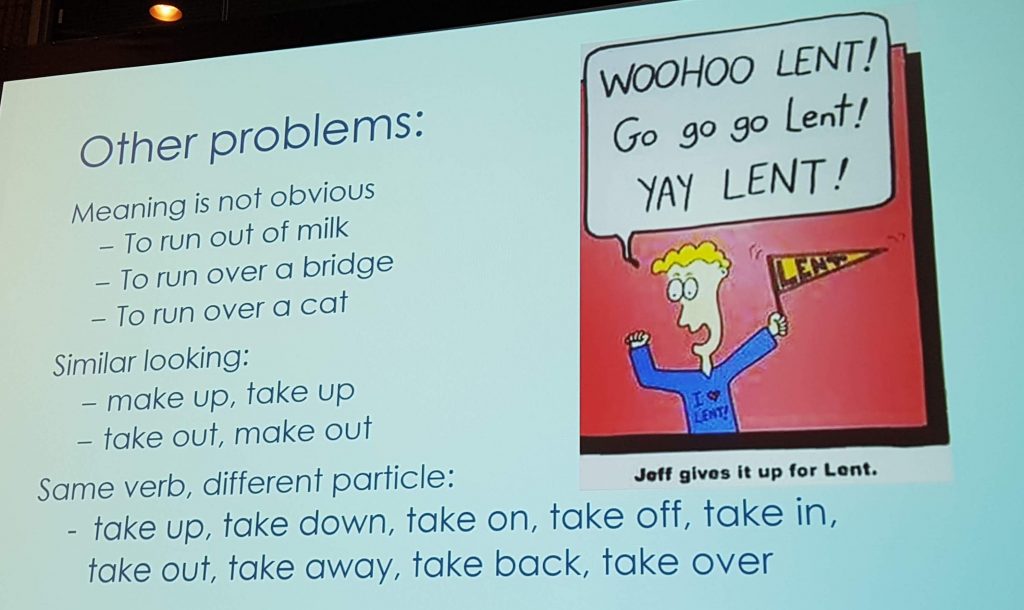It was interesting to see how both teams AGREED with today’s statement and how the follow up group discussion brought back a number of memories from my previous learning experience. I personally agree with Curtis and Lisa that the 4Cs, such as critical thinking, collaboration, communication, and creativity cannot be learnt through googling.
My past schooling experience in Romania was mostly focusing on memorization and regurgitating the information taught. There is proof that it can happen without having access to google, too. As my classmate, Dean mentioned, the whole idea is behind the approach the teacher is taking. Daina and Jocelyn pointed out that google, by itself is not bad, it can enhance learning. We just have to learn how to make the most out of it by helping our students to learn how to apply-, synthesize-, and be creative with knowledge and remember key parts of what they learn (LoTi framework).
Being an English language learner and an EAL teacher, the article “Why Kids can’t write” made me very curious. The article focuses on the importance of classroom instruction that supports and promotes purposeful learning. As the article points out, asking the students to write about their weekend or what they did can make the writing process dreadful, since some kids don’t have anything exciting happening they could write about. I think any type of prompt: a picture, a story starter, a story itself, a short video, etc. are all great ways that help our students with writing. Or, in this case, what great purpose would a land-based or hands-on pedagogy provide for writing?
When it comes to purposeful learning, it is also important to know our students. As an EAL teacher, the first thing I look at when a new student arrives is their initial assessment report that gives me a clear picture of the language fluency level of the student. This helps me decide what to focus on. As part of my Master’s Certificate in TESOL we had quite a few debates if non native speakers should be taught grammatical forms or not. Me being in the process of acquiring English language for over 30 years, I would say there is no way a non-native speaker can learn proper English without knowing grammatical rules. I might sound harsh, but I think it is crucial to know the mechanics of a language to be able to speak and write correctly. I often experience that my students who have a strong first language, acquire the English language a lot easier and faster. But does this mean that memorizing the grammatical rules will make the learner fluent in a language?
Certain subjects require more memorization than others. I often hear people being against it. I think memorization to a certain level is necessary to be able to take it to the next level. For example, if one does not memorize words, they will never be able to speak a language. The English language is full of expressions, phrasal verbs and idioms, that I could never use if I do not memorize them. You can only become creative and innovative, if you have tools at your finger tips.

I also think that google cannot help a learner truly understand these words and expressions, since they act so differently in context. During my elementary and middle years I was expected to regurgitate English forms and grammar and when a young, vibrant English teacher from the U.S. showed up in our school, I could not form a sentence, let alone have a conversation with her. I could not apply, synthesize, nor be creative and use what we had learnt. This is why I think that schools should not focus on teaching things that can be googled but implement a holistic approach to teaching with a focus on meaningful learning moments.
Thank you for listening to my thoughts! 🙂

Melinda! What an interesting perspective you have on the issue that I would never have considered. I am so glad that I clicked here. I have often wondered how helpful basic “googling” is when learning English – specifically because so much depends upon context. You said that you’ve been acquiring the English language over 30 years (you’re amazing) – in your experience would access to the tools google can link you to be helpful long term- or only to a point?
Hi Victoria!
Thank you so much for your comment! I think the tools google is offering are great to grow in certain areas. By reading articles at different reading levels can help with learning how to express the same idea in different ways, even at a higher level. For such an activity someone would have to be at a higher fluency level already. Having the opportunity to listen to stories definitely helps with listening skills and through this with vocabulary development. Personally, I think the hardest to acquire through googling is the everyday speech, idioms, expressions and slang. That you need to hear how people are using in context. Many times I google how to use certain things in a sentence and I just wish I could ask a native speaker how to use it. Or there are words that you know the meaning of but not sure if it is a polite form or not. I’m sure every language has words that are used with certain people in certain situations. As far as I know, Google doesn’t have the answer for this.
Melinda, I loved hearing your perspective from an EAL point of view. I also loved your article on Why Kids Can’t Write. I love to teach writing and feel it’s so important to model good writing by showing them how you write, by writing stories, poems, parts of stories together-collaboration– read, reread, edit and make different versions. Give them tools on how to hook your reader with a good beginning– 6 super ways to start a story and PRACTICE THEM using the I do, we do, you do model. Read together. Make connections. Find beautiful words and quotes.
One thing I always think of when I have EAL students is “what language are they thinking in”. I think that has lots of relevance because if they are thinking in another language, that is a whole other step to transferring to English, so it is so important to really know your students as learners.
Thanks for your perspective!
Hi Lisa,
Thank you so much for your comments. I totally agree with you. It is so important to model the steps of the writing process and to collaborate. Interesting point you brought up by mentioning what language the students are thinking in. Absolutely!!! So much gets lost in the translation…